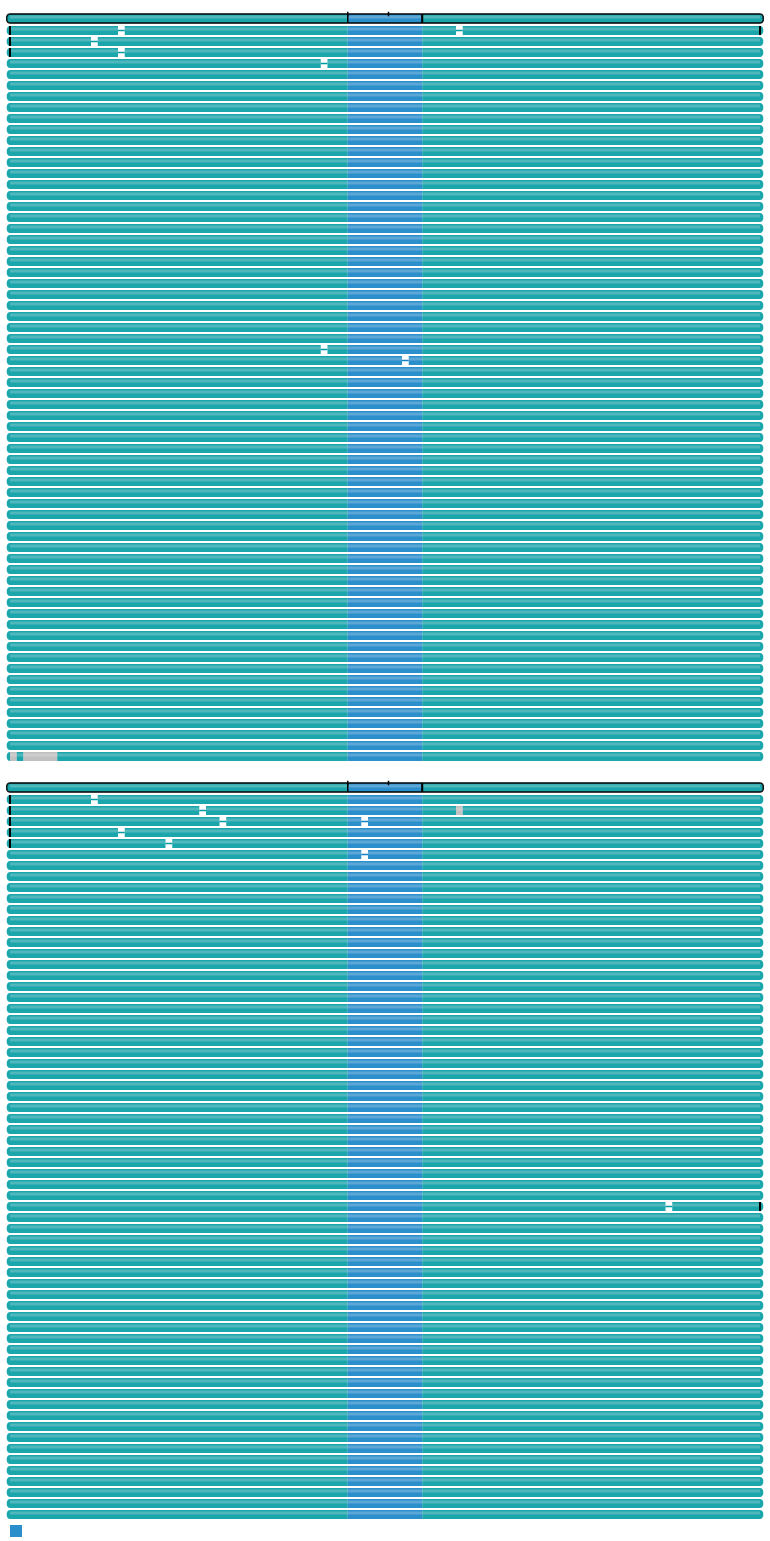nf-core/pacvar
Longread PacBio sequencing processing for WGS and PureTarget
Introduction
This document describes the output produced by the pipeline. Most of the plots are taken from the MultiQC report, which summarises results at the end of the pipeline.
The directories listed below will be created in the results directory after the pipeline has finished. All paths are relative to the top-level results directory.
Pipeline overview
The pipeline is built using Nextflow and processes data using the following steps:
- LIMA - Demultiplex samples
- PBMM2 - Align samples to reference genome
- SAMTOOLS SORT - Sort BAM files
- SAMTOOLS INDEX - Index BAM files
- DEEPVARIANT - Variant call SNVs
- HAPLOTYPECALLER - Variant call SNVs
- pbsv - Variant call SVs
- TRGT - Genotype and Plot structural variants
- BCFTOOLS - Index VCF files
- HIPHASE - Phase VCF, and BAM files
- Pipeline information - Report metrics generated during the workflow execution
When --skip_demultiplexing is false (default behavior)
LIMA
Output files
lima/<sample><barcode-pair>.bam: The demultiplexed bamfiles<basename>.bam.pbi: The Pacbio index of bam files<sample>.lima.counts: Counts of the number of reads found for each demultiplexed sample<sample>.lima.report: Tab-separated file about each ZMW (Zero-Mode Waveguide), unfiltered<sample>.lima.summary: File that shows how many ZMWs (Zero-Mode Waveguide) have been filtered, how ZMWs many are same/different
LIMA demultiplex samples
Note:
- If
--skip_demultiplexingis true:<basename> = <sample> - If
--skip_demultiplexingis false:<basename> = <sample>.<barcode-pair>
PBMM2
Output files
pbmm2/<basename>.aligned.bam: Aligned BAM
PBMM2 Aligned BAM files
SAMTOOLS
Output files
samtools/<basename>.sorted.bam: The sorted BAM file.<basename>.sorted.bam.bai: The indexed BAM file.
SAMTOOLS Sort and index aligned bams.
GATK4
Output files
gatk4/<basename>.snv.vcf.gz: VCF of the SNV<basename>.snv.vcf.gz.tbi: Associated indexes for the VCF files
GATK4 HaplotypeCaller - SNV detection and Variant Call tool.
PBSV
Output files
pbsv/<basename>.sv.vcf: VCF of SV<basename>.svsig.gz: File containing signatures of structural variants
PBSV. Discover and call structural variants
HIPHASE
Output files
hiphase/<basename>.snv.phased.bam: Haplotagged BAM - outputted from phasing based on SNV<basename>.sv.phased.bam: Haplotagged BAM - outputted from phasing based on SV<basename>.snv.phased.vcf: The phased Variant File (SNV) (Zipped)<basename>.sv.phased.vcf: The phased Variant File (SV) (Zipped)<basename>.snv.stats.csv: This CSV/TSV file contains information about the the phase blocks that were output by HiPhase (SNV)<basename>.sv.stats.csv: This CSV/TSV file contains information about the the phase blocks that were output by HiPhase (SV)
TABIX
Output files
tabix/<basename>.sv.vcf.gz: Zipped PBSV VCF files
TABIX VCF file handler - VCF zipping.
BCFTOOLS
Output files
BCFTOOLS/<basename>.sv.vcf.gz.csi: Index of PBSV VCF files
BCFTOOLS Manipulates VCF files including Indexes them
DEEPVARIANT
Output files
deepvariant/<basename>.snv.vcf.gz: Zipped VCF file<basename>.snv.vcf.gz.tbi: Associated index to zipped VCF file
DEEPVARIANT SNV caller
TRGT
Output files
trgt/<basename>.bam.vcf.gz: VCF file for the repeat region<basename>.bam.spanning.bam: BAM for the repeat region<basename>.png: Waterfall plot of the repeat region
Example png output: sample1_C9ORF72.png

TRGT Plots and Genotypes tandem repeats
MultiQC
Output files
multiqc/multiqc_report.html: a standalone HTML file that can be viewed in your web browser.multiqc_data/: directory containing parsed statistics from the different tools used in the pipeline.multiqc_plots/: directory containing static images from the report in various formats.
MultiQC is a visualization tool that generates a single HTML report summarising all samples in your project. Most of the pipeline QC results are visualised in the report and further statistics are available in the report data directory.
Results generated by MultiQC collate pipeline QC from supported tools e.g. FastQC. The pipeline has special steps which also allow the software versions to be reported in the MultiQC output for future traceability. For more information about how to use MultiQC reports, see http://multiqc.info.
Pipeline information
Output files
pipeline_info/- Reports generated by Nextflow:
execution_report.html,execution_timeline.html,execution_trace.txtandpipeline_dag.dot/pipeline_dag.svg. - Reports generated by the pipeline:
pipeline_report.html,pipeline_report.txtandsoftware_versions.yml. Thepipeline_report*files will only be present if the--email/--email_on_failparameter’s are used when running the pipeline. - Reformatted samplesheet files used as input to the pipeline:
samplesheet.valid.csv. - Parameters used by the pipeline run:
params.json.
- Reports generated by Nextflow:
Nextflow provides excellent functionality for generating various reports relevant to the running and execution of the pipeline. This will allow you to troubleshoot errors with the running of the pipeline, and also provide you with other information such as launch commands, run times and resource usage.